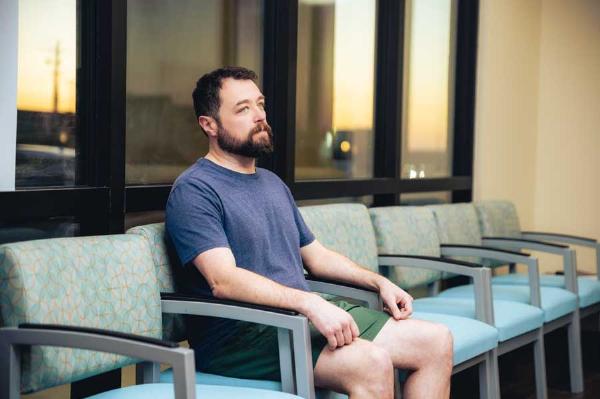The Essential Role of Doctors in Urgent Care

Strong 8k brings an ultra-HD IPTV experience to your living room and your pocket.
In the modern healthcare landscape, urgent care centers have become an indispensable component, providing timely and efficient medical attention to patients who need immediate but non-emergency care. These facilities bridge the gap between primary care and emergency rooms, offering a viable solution for conditions that require prompt attention yet are not severe enough to necessitate a visit to the emergency department. Central to the success and efficiency of urgent care centers are the doctors who work there. This article delves into the critical role these healthcare professionals play, the challenges they face, and the impact they have on the overall healthcare system.
The Rise of Urgent Care Centers
Urgent care centers emerged in response to the increasing demand for accessible and immediate medical care. With the rise in healthcare costs and the overcrowding of emergency rooms, these centers offer a cost-effective and convenient alternative. They cater to a wide range of medical issues, including minor injuries, infections, fractures, and other non-life-threatening conditions. The convenience of walk-in appointments, extended hours, and shorter wait times have made urgent care centers an attractive option for patients.
The Role of Doctors in Urgent Care
Immediate Medical Attention
Doctors in urgent care settings are responsible for providing rapid and effective medical attention. They must quickly assess and diagnose patients, often within a limited timeframe. This requires a broad knowledge base and the ability to make swift decisions. Unlike in a traditional primary care setting, urgent care doctors frequently encounter a diverse array of medical issues, requiring them to be versatile and adaptable.
Diagnostic Skills
Given the nature of urgent care, doctors must have excellent diagnostic skills. They often have to make quick assessments with limited information and diagnostic tools. This involves a combination of clinical expertise, intuition, and experience. They may need to interpret X-rays, perform minor surgical procedures, and prescribe medication—all within a single visit. Their ability to accurately diagnose and treat patients on the spot is crucial for effective patient care and for preventing conditions from worsening.
Patient Education and Follow-Up Care
An important aspect of the doctor’s role in urgent care is educating patients about their conditions and the necessary follow-up care. This involves explaining the diagnosis, treatment options, and any required medications. Doctors must ensure that patients understand their health situation and what steps they need to take after leaving the urgent care center. This educational role is vital for patient recovery and for preventing future health issues.
Challenges Faced by Urgent Care Doctors
High Patient Volume and Fast-Paced Environment
One of the primary challenges for doctors in urgent care is the high patient volume and the fast-paced environment. They must manage their time efficiently to see and treat as many patients as possible while maintaining a high standard of care. This can be stressful and requires excellent time-management skills.
Varied and Unpredictable Cases
Urgent care doctors encounter a wide variety of cases, many of which are unpredictable. Unlike specialized medical fields, urgent care does not focus on one particular type of ailment. This means that doctors must be prepared for anything, from treating a child with a fever to managing a patient with a minor fracture. The unpredictability of cases requires doctors to be flexible and ready to handle whatever comes through the door.
Limited Resources
Urgent care centers typically have fewer resources compared to hospitals. They may lack extensive diagnostic equipment and specialized support staff. This limitation means that doctors must rely heavily on their clinical skills and judgment. They must know when to treat a patient on-site and when to refer them to a hospital for more comprehensive care.
The Impact of Urgent Care on the Healthcare System
Reducing Emergency Room Burden
One of the significant impacts of urgent care centers is the reduction of the burden on emergency rooms. Many patients who visit emergency rooms do not have life-threatening conditions and could be treated in an urgent care setting. By diverting these patients to urgent care centers, emergency rooms can focus on more critical cases, thereby improving the efficiency of the entire healthcare system.
Cost-Effective Care
Urgent care centers provide a more cost-effective solution for both patients and the healthcare system. The cost of treatment in an urgent care center is significantly lower than in an emergency room. This is particularly important in the context of rising healthcare costs. By providing immediate care for non-emergency conditions at a lower cost, urgent care centers help in reducing overall healthcare expenditures.
Increased Access to Healthcare
Urgent care centers increase access to healthcare by providing extended hours and accepting walk-in appointments. This is especially beneficial for individuals who may not have a regular primary care physician or who need medical attention outside of typical office hours. The increased accessibility helps in addressing medical issues promptly, preventing complications and the progression of diseases.
The Future of Urgent Care and the Evolving Role of Doctors
The demand for urgent care centers is expected to continue growing, driven by factors such as increasing healthcare costs, the need for convenient care, and the ongoing shortage of primary care physicians. As the field evolves, the role of doctors in urgent care will also change.
Integration with Primary Care
There is a growing trend towards integrating urgent care with primary care services. This integration aims to provide a more seamless patient experience and improve continuity of care. Doctors in urgent care centers may increasingly collaborate with primary care physicians to ensure that patients receive comprehensive and coordinated care.
Advancements in Telemedicine
The advent of telemedicine is also transforming urgent care. Telemedicine allows doctors to provide remote consultations, expanding access to care and making it more convenient for patients. This technology can be particularly useful in urgent care settings, where quick consultations can determine the need for in-person visits. Doctors will need to adapt to this new mode of delivering care and develop skills in telemedicine.
Continued Professional Development
As the scope of urgent care continues to broaden, ongoing professional development will be essential for doctors. Keeping up-to-date with the latest medical advancements, treatment protocols, and diagnostic techniques will be crucial. Continued education and training will ensure that doctors can provide the best possible care in an ever-changing healthcare environment.
Conclusion
Doctors play a pivotal role in the success and effectiveness of urgent care centers. Their ability to provide immediate, accurate, and cost-effective care significantly impacts the overall healthcare system. Despite the challenges they face, including high patient volumes, varied cases, and limited resources, urgent care doctors contribute to reducing emergency room congestion, lowering healthcare costs, and increasing access to medical services. As the healthcare landscape continues to evolve, the role of doctors urgent care will adapt, incorporating new technologies and models of care to meet the growing demands of the population. The future of urgent care looks promising, with doctors at the forefront, ensuring that patients receive timely and efficient medical attention when they need it the most.
Note: IndiBlogHub features both user-submitted and editorial content. We do not verify third-party contributions. Read our Disclaimer and Privacy Policyfor details.







